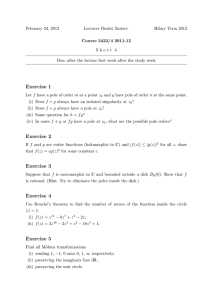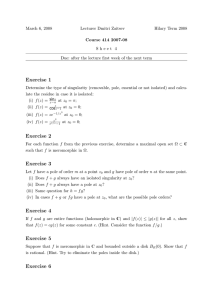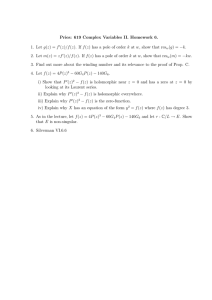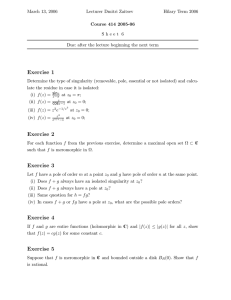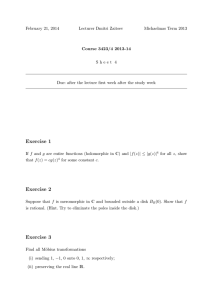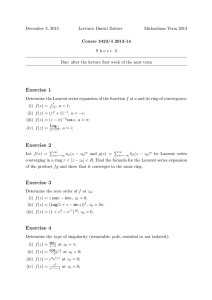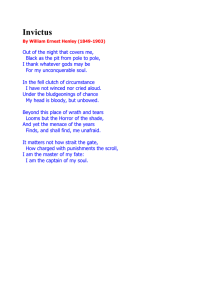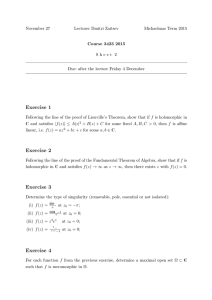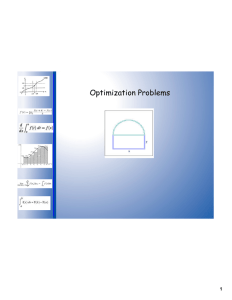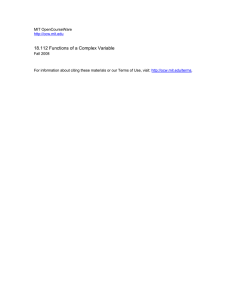February 26, 2010 Lecturer Dmitri Zaitsev Michaelmas Term 2009 Course 3423/4 2009-10
advertisement
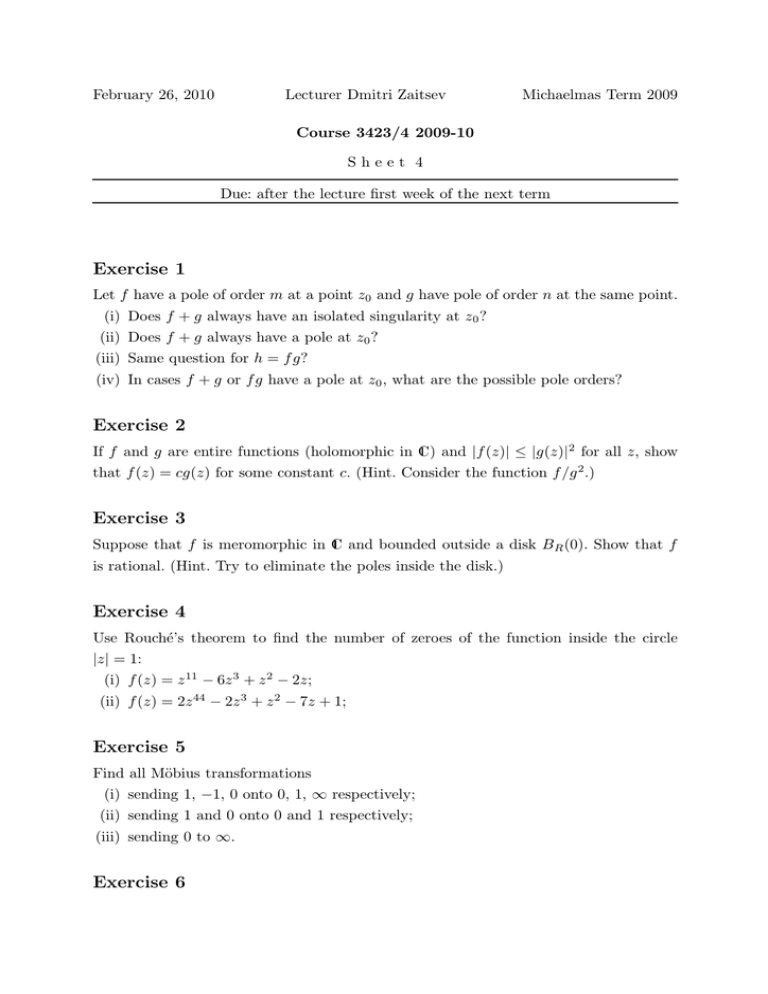
February 26, 2010
Lecturer Dmitri Zaitsev
Michaelmas Term 2009
Course 3423/4 2009-10
Sheet 4
Due: after the lecture first week of the next term
Exercise 1
Let f have a pole of order m at a point z0 and g have pole of order n at the same point.
(i) Does f + g always have an isolated singularity at z0 ?
(ii) Does f + g always have a pole at z0 ?
(iii) Same question for h = f g?
(iv) In cases f + g or f g have a pole at z0 , what are the possible pole orders?
Exercise 2
If f and g are entire functions (holomorphic in C) and |f (z)| ≤ |g(z)|2 for all z, show
that f (z) = cg(z) for some constant c. (Hint. Consider the function f /g 2 .)
Exercise 3
Suppose that f is meromorphic in C and bounded outside a disk BR (0). Show that f
is rational. (Hint. Try to eliminate the poles inside the disk.)
Exercise 4
Use Rouché’s theorem to find the number of zeroes of the function inside the circle
|z| = 1:
(i) f (z) = z 11 − 6z 3 + z 2 − 2z;
(ii) f (z) = 2z 44 − 2z 3 + z 2 − 7z + 1;
Exercise 5
Find all Möbius transformations
(i) sending 1, −1, 0 onto 0, 1, ∞ respectively;
(ii) sending 1 and 0 onto 0 and 1 respectively;
(iii) sending 0 to ∞.
Exercise 6
Let Ω ⊂ C be open and connected and f : Ω → C a holomorphic map. Show that
either f ≡ ∞ or the set f −1 (∞) has no limit points in Ω.
Exercise 7
Find all biholomorphic self-maps of Ω:
(i) Ω = {z : |Rez| < 1} (Hint. Find a biholomorphic map of the strip onto the upperhalf plane using ez .)
(ii) Ω = H \ {i}, where H is the upper-half plane.
